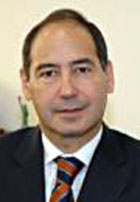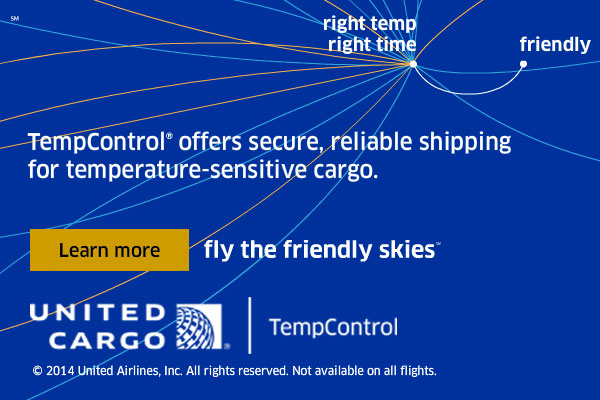
 February
has been quite a month for news related to IATA and IATA Cargo. February
has been quite a month for news related to IATA and IATA Cargo.
First, the man who headed IATA air cargo
for three years and hosted the last World Cargo Symposium (WCS) in Los
Angeles in 2014 (and, after WCS, quickly “retired to spend more
time with . . . family”), Des Vertannes has almost as quickly regenerated
himself and “unretired.” He is back in air cargo reportedly
having joined a Boston-based IT firm.
IATA has announced that it is offering cash
on the barrelhead for anybody with the best idea willing to travel to
PVG for WCS on March 8. So far, only three companies have made the cut
and are scheduled to present their ideas; all are Dutch.
We have reported in the past that IATA Cargo
has called for ideas at other WCS gatherings, but handing out bucks for
brainstorms is something entirely new for air cargo.
On one hand, the gambit confirms IATA doesn’t
really have anything in its bag of tricks that can be construed as a breakthrough
for the delegates at WCS this year.
On the other hand, pitching to the strength
of air cargo—the thousands of companies and tens of thousands of
people who make this industry great—may just be the winningest idea
all by itself.
We just wonder how all of the smart people
landed in the Netherlands.
But let’s suspend disbelief and see
what they have to offer, as we will certainly share our thoughts, dear
reader, right here, as time goes by.
This is about a paper IATA recently put
out, which we suppose was created out where that organization thinks some
of its big thoughts around beautiful Lake Geneva in Switzerland.
In Europe tensions have recently risen between
the newly elected Greek government (led by Prime Minister Alexis Tsipras
of the leftist Syriza party) and other members of the Eurozone, as a so-called
Greek exit or “Grexit” from the EU Zone looms large on the
horizon.
Grexit is also the subject of a recent paper
from IATA titled “What would a ‘Grexit’ mean for the
Eurozone air passenger market?”
The paper is impressive in presentation
(linked
here) put out by by some economic folks in Geneva.
But upon closer examination we wonder if
these people really know what they are talking about.
In truth, this report actually says very
little, providing a lot of figures but scarce background and no clear
guidance on how Greece’s “Grexit” might impact European
aviation.
For example, in the analysis of the passenger
traffic streams, both domestically within the various European states
and intra-European, IATA has either forgotten a few significant factors
impacting European aviation or voluntarily decided not to mention them:
While Germany, as the economically strongest
EU member, plays a significant role in IATA’s analysis, the considerable
impact of strikes occurring in the last few years, which have taken down
German aviation to a practical standstill, appears to have been disregarded
in this report.
Likewise, IATA forgot to mention that the
German Passenger Tax (GPT) imposed on all tickets in Germany has driven
sizable numbers of German air passengers in parts of the country with
other air options to utilize gateways such as Zurich, Schiphol, Brussels,
and Vienna.
IATA outlines that “Indeed, some economists
think that euro exit could actually present the weaker members of the
Eurozone with better long-term prospects than remaining in the euro, and
potentially lead to faster growth in the region as a whole in the long
term.
“This would particularly be the case
if some Grexit-type event resulted in a pick-up in domestic demand in
the ‘healthier’ parts of the region—notable in Germany,”
IATA writes.
How an exit of Greece from the Eurozone
is supposed to stimulate the domestic growth in Germany is unexplained
in this report.
Thinking into it a bit further, we wonder
why Germans would fly more (or other European nationals might commence
flying via Germany or on German air carriers) because Greece left the
Eurozone?
Greece is a popular holiday destination in Europe.
But supposing Grexit occurs and the Drachma
returns, vacationing in Greece would actually be less expensive for Eurozone
citizens as IATA has outlined that that Germany alone would have to write
off 83 billion Euros (US $94.5 billion), something German Chancellor Angela
Merkel has promised “could not and will not happen.”
Grexit has a number of ramifications IATA
has overlooked, including its political effect on the rest Europe.
In some quarters, the thinking follows that
writing off Greece’s debt entirely could also boost the advent of
anti-European, anti-Euro and nationalist movements throughout Europe.
IATA’s analysis does not take into
account that while a “Grexit” would have Greece expelled from
the Eurozone, the nation would still be a member of the European Community.
But while the Rome and Maastricht European
Treaties provide ample guidance on accession to the EC and member states’
commitments and obligations, they do not provide for an exit mode.
IATA’s economists and report writers
utilize information from many sources, including the Bloomberg and Reuter’s
newswires.
Not a bad idea to add some Mark Twain words
to the mix:
“It's tough to make predictions, especially
about the future,” wrote Samuel Langhorne Clemens (MT).
Jens
|





